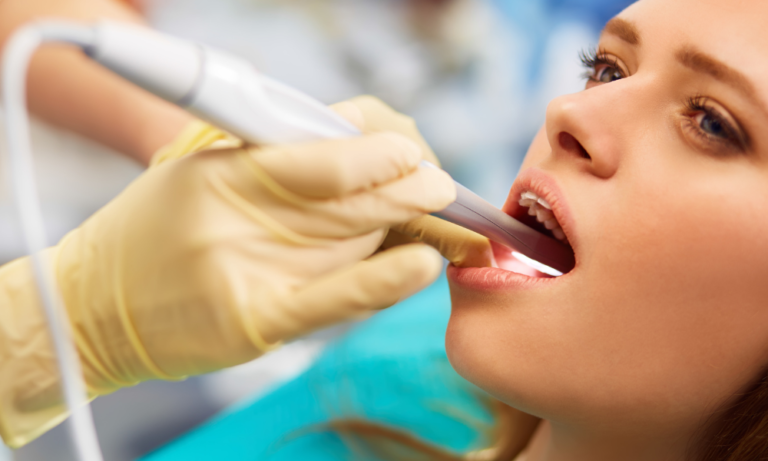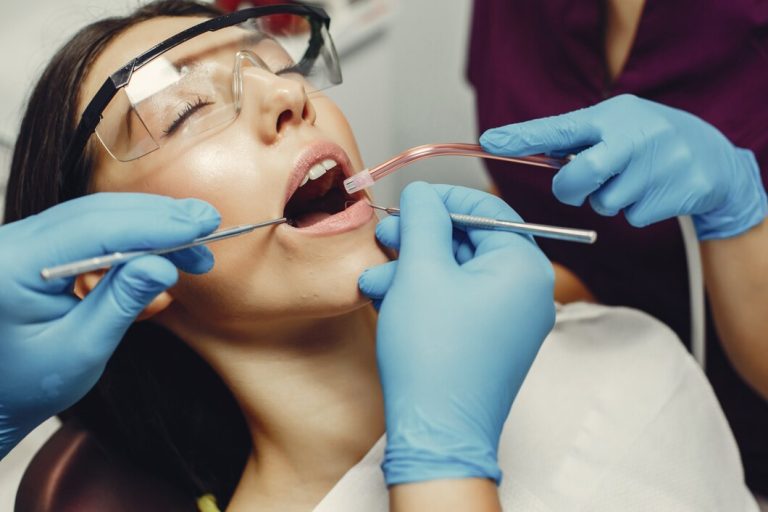Bleeding gums are not just a minor inconvenience; they are a sign that something is wrong with your oral health. We often encounter patients who initially overlook this symptom, not realizing that it could be an indicator of something more serious. It’s our goal to educate and encourage everyone not to dismiss such important signs. Bleeding gums can happen for several reasons, ranging from simple irritation due to improper brushing to more serious conditions like gum disease.
We understand the concerns and fears that can accompany dental issues. Thus, we are here to guide you, offering understanding and professional advice. Maintaining healthy gums is not only crucial for your dental health but also for your overall well-being. In this guide, we’ll explore why bleeding gums should not be ignored and how addressing this issue promptly can prevent more severe health complications. Let us take you through understanding the common causes, the potential risks of neglecting the issue, and how to effectively prevent it, ensuring that your gums and teeth remain healthy. Through this article, we aim to empower you with knowledge and practical advice, making gum health management approachable and understandable.
Common Causes of Bleeding Gums
Bleeding gums can often be traced back to a few common causes that we frequently explain to our patients. The most prevalent reason is gingivitis, an inflammation of the gums caused by plaque buildup at the gumline. If not removed, plaque hardens into tartar, exacerbating gum irritation and leading to more bleeding. Another significant cause is improper or aggressive brushing. Using a hard-bristled toothbrush or applying too much force can damage delicate gum tissues, causing them to bleed.
Additionally, certain medical conditions such as diabetes, blood disorders, and vitamin deficiencies can also contribute to this issue. Moreover, changes in hormones during pregnancy can make gums more susceptible to bleeding. Understanding these causes is a vital first step in addressing gum bleeding effectively. By recognizing what contributes to this problem, we are better equipped to tailor our treatment and recommendations to each individual’s situation.
Potential Health Risks Associated with Ignoring Bleeding Gums
Ignoring bleeding gums can lead to serious health complications, which is why we stress the importance of addressing this symptom promptly. Untreated gingivitis can progress to periodontitis, a more severe form of gum disease that affects not just your gums but also the bones involved in supporting your teeth. This can lead to tooth loss and has also been linked to other serious health issues, including heart disease, stroke, and respiratory problems.
Furthermore, chronic inflammation associated with ongoing gum disease can exacerbate other systemic conditions like diabetes, by interfering with blood sugar control. Oral health isn’t just about maintaining a nice smile; it’s a crucial component of your overall health. We strive to prevent these serious outcomes by encouraging our patients to pay attention to early signs like bleeding gums and seek timely treatment. By understanding the risks involved with ignoring these symptoms, our patients are more likely to take swift action, protecting both their oral and overall health.
Preventive Tips to Stop Gums from Bleeding
Maintaining good oral health is crucial for preventing your gums from bleeding. We advocate for a proactive approach in your daily dental care routine to fight off gum disease before it starts. Firstly, using the right toothbrush is essential. Opt for a soft-bristled brush which is gentle on your gums and still effective in cleaning your teeth. It’s also important to change your toothbrush every three to four months or sooner if the bristles are frayed.
Secondly, flossing daily is another critical habit. Flossing removes food particles and plaque from between your teeth and under the gum line, areas your toothbrush can’t reach. We also recommend using a fluoride mouthwash, which helps to kill bacteria that cause gum disease. Lastly, maintaining a well-balanced diet rich in vitamins C and D, calcium, and omega-3 fatty acids can strengthen your gums and reduce inflammation. By adhering to these preventative measures, you can keep your gums healthy and minimize the risk of bleeding.
When to Consult a Professional for Bleeding Gums
If you notice persistent bleeding despite following a good oral hygiene routine, it may be time to consult us. Bleeding gums can be a sign of gingivitis or more severe periodontitis, requiring professional intervention. Particularly, if you experience other symptoms such as swelling, redness in your gums, bad breath that doesn’t go away, or teeth that are loosening, these are indicators to seek our help promptly.
In our office, we can provide a thorough evaluation and determine the best course of action to treat your gum condition. Depending on the diagnosis, treatment may involve professional cleanings, prescribed medications, or more advanced procedures if necessary. The key is not to delay seeking help, as early treatment can prevent more serious complications associated with gum disease.
In conclusion, bleeding gums serve as a crucial indicator that shouldn’t be overlooked. By understanding its causes, recognizing the associated health risks, and applying effective preventive tips, you are taking important steps toward maintaining good oral health. However, remember, when home care isn’t enough, turning to professionals is a wise decision.
If you’re experiencing any concerns with your gums or just want to ensure your oral health is on track, don’t hesitate to reach out to us at Colorado Gum Care in Northglenn. Let our dedicated periodontists in Westminster and Northglenn help you achieve a healthy smile with confidence.







